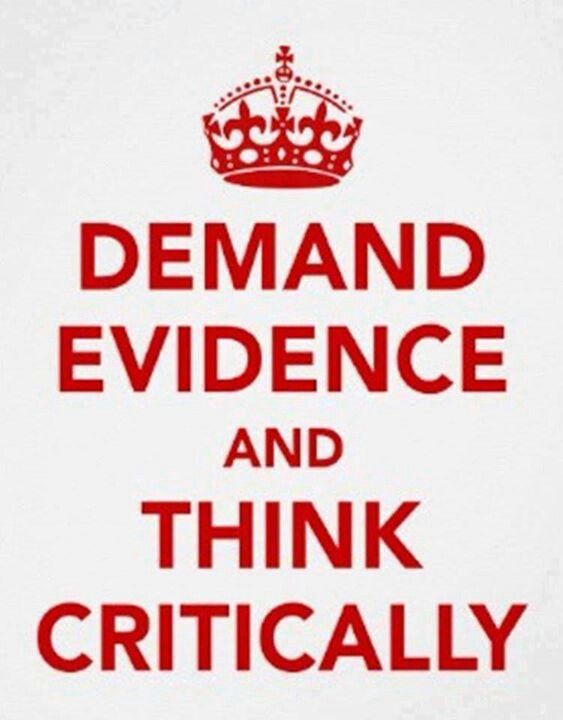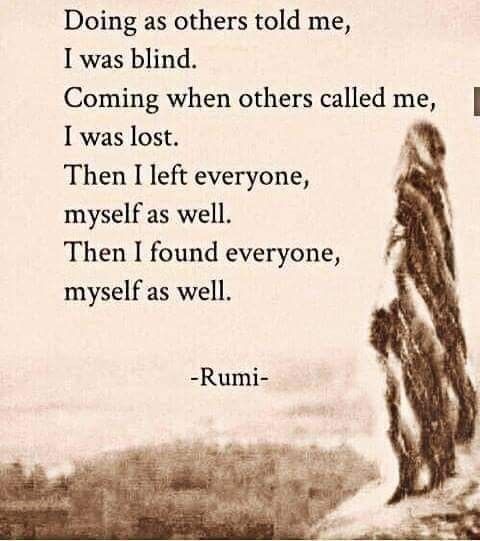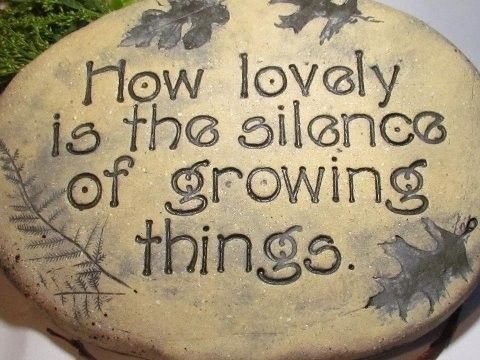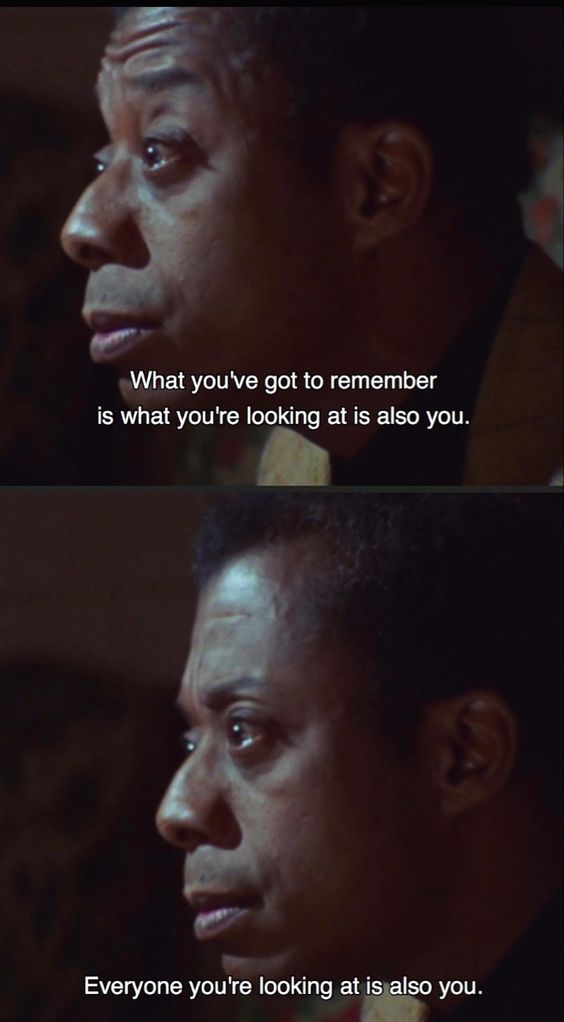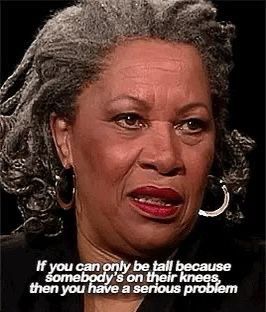“My body knew that my weight, the exact number, became an emotional, psychological, and spiritual destination a long time ago. I knew, and worried, about how much I weight and exactly how much money I had every day of my life since I was eleven years old. The weight reminded me of how much I’d eaten, how much I’d starved, how much I’d exercised, and how much I sat still yesterday. My body knew I was no more liberated or free when I was 159 pounds with 2 percent body fat that I was at 319 pounds with achy joints. I loved the rush of pushing my body beyond places it never wanted to go, but I was addicted to controlling the number on that scale. Controlling that number on the scale, more than writing a story or essay or feeling loved or making money or having sex, made me feel less gross, and most abundant. Losing weight helped me forget.”
Kiese Laymon, Heavy (Page 207)
“My job as a teacher was to help them breathe with excellence and discipline in the classroom. The ones that love you, they become what you model. Don’t forget that. Help them breathe by modeling responsible love in the classroom every single day. The most important thing a teacher can do is give their students permission to be loving and excellent.”
Kiese Laymon’s mom, Heavy (Page 180)
“The constant awareness that one should not start clinging to anything makes life blissful. One enjoys tremendously whatever is available. It is always more than one can enjoy, and it is always available. But the mind is too attached to things—we become blind to the celebration that is always available.”
Osho, Everyday Osho (Page 261)
“In class, I only spoke when I could be an articulate defender of black people. I didn’t use the classroom to ask questions. I didn’t use the classroom to make ungrounded claims. There was too much at stake to ask questions, to be dumb, to be a curious student, in front of a room of white folk who assumed all black folk were intellectually less than. For the first time in my life, the classroom scared me. And when I was scared, I ran to cakes, because cakes felt safe, private, and celebratory. Cakes never fought back.”
Kiese Laymon, Heavy (Page 123)
“I asked you if I could take some books from the house to have in my dorm room. You reached up, pulled on my neck, and kissed me on the top of the head. I pulled away. ‘Maybe the books will protect you,’ you said. ‘Take all the books you need. And don’t fight when you’re angry. Think when you’re angry. Write when you’re angry. Read when you’re angry. Don’t let those people shoot you out of the sky while I’m gone.’ I rolled my eyes and sucked hard on my teeth as you walked to the end of the line. ‘Don’t be good,’ you said across the space between us. ‘Be perfect. Be fantastic.'”
Kiese Laymon, Heavy (Page 119)
“The rest of my teachers maybe did the best they could, but they just needed a lot of help making their best better. There were so many things we needed in those classrooms, in our city, in our state, in our country that our teachers could have provided if they would have gone home and really done their homework. They never once said the words: ‘economic inequality,’ ‘housing discrimination,’ ‘sexual violence,’ ‘mass incarceration,’ ‘homophobia,’ ’empire,’ ‘mass eviction,’ ‘post traumatic stress disorder,’ ‘white supremacy,’ ‘patriarchy,’ ‘neo-confederacy,’ ‘mental health,’ or ‘parental abuse,’ yet every student and teacher at that school lived in a world shaped by those words.”
Kiese Laymon, Heavy (Page 114)
“You hurting yourself by trying to let folk know they hurt you. God gives us five sense for a reason. You hear me? Use them. Stop hunting for distractions. Stop taking your own legs out. It’s enough mess out there trying to beat us down without you helping.”
Kiese Laymon’s Grandmother, Heavy (Page 114)
“I saw my life branching out before me like the green fig tree in the story. From the tip of every branch, like a fat purple fig, a wonderful future beckoned and winked. One fig was a husband and a happy home and children, and another fig was a famous poet and another fig was a brilliant professor, and another fig was Ee Gee, the amazing editor, and another fig was Europe and Africa and South America, and another fig was Constantin and Socrates and Attila and a pack of other lovers with queer names and offbeat professions, and another fig was an Olympic lady crew champion, and beyond and above these figs were many more figs I couldn’t quite make out. I saw myself sitting in the crotch of this fig tree, starving to death, just because I couldn’t make up my mind which of the figs I would choose. I wanted each and every one of them, but choosing one meant losing all the rest, and, as I sat there, unable to decide, the figs began to wrinkle and go black, and, one by one, they plopped to the ground at my feet.”
Sylvia Plath, The Bell Jar
“She had blue skin,
Shel Silverstein, Everything On It
And so did he.
He kept it hid
And so did she.
They searched for blue
Their whole life through,
Then passed right by—
And never knew.”
“I share with painters the desire
Nikki Giovanni, Cotton Candy on a Rainy Day
To put a three-dimensional picture
On a One-dimensional surface.”
“The truth was that practicing writing meant practicing sitting down, sitting still, and my body did not ever want to be still. When it had to be still, all it wanted to do was imagine dunking with two hands or kissing a girl who loved me. Sitting still, just as much as any other part of writing, took practice. Most days, my body did not want to practice, but I convinced it that sitting still and writing were a path to memory.”
Kiese Laymon, Heavy (Page 86)
